- Home
- Media Kit
- Current Issue
- Past Issues
- Ad Specs-Submission
- Ad Print Settings
- Reprints (PDF)
- Photo Specifications (PDF)
- Contact Us

![]()
ONLINE

Leading Triumph

Debbie Silverstein,
The Washington Jefferson
Debbie Silverstein began her career in the hotel industry at the Rihga Royal Hotel. She gained further experience at IBM Conference Centers, Dolce Palisades, and IBM Armonk before joining Triumph Hotels as the General Manager of The Washington Jefferson.
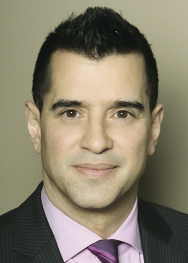
John David Agosto,
The Evelyn
John David Agosto had his first management position as the Front Office Manager at The Wales Hotel. Following stints at The Franklin Hotel, The Shoreham, Tribeca Grand Hotel, The City Club Hotel, and Hudson Hotel, he assumed the role of General Manager of The Evelyn.
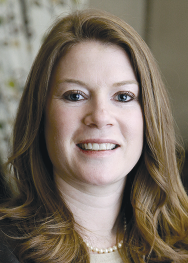
Kate Martin,
Hotel Chandler
Kate Martin worked with InterContinental Hotels of the World while in school. She later worked at the Rihga Royal Hotel, The Iroquois New York, and Le Marquis Hotel. She served as General Manager at The Washington Jefferson Hotel before assuming her current role of General Manager of Hotel Chandler.
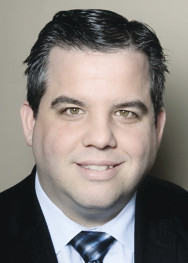
Robert Holmes,
The Iroquois New York
Robert Holmes spent three years at The Grand Hyatt New York. From there, he moved to the Park Hyatt Washington D.C. and later to the Hyatt Regency on the Hudson before joining Hotel Wales, where he soon became General Manager. He currently serves as the General Manager of The Iroquois New York.
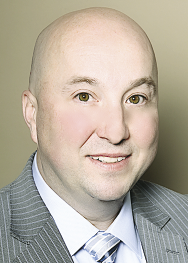
Scott Geres,
Hotel Belleclaire
After college, Scott Geres started as a member of the opening team at the SoHo Grand Hotel. He then worked at the Tribeca Grand Hotel before joining Triumph Hotels as Executive Assistant Manager at The Iroquois New York and subsequently becoming General Manager of Hotel Belleclaire.
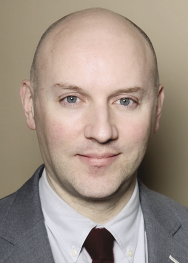
Sava Vasiljevic,
The Cosmopolitan-Tribeca
Sava Vasiljevic began working with the Marriott Marquis Times Square. He later joined the Sherry-Netherland Hotel before assuming roles at the Le Marquis Hotel, the Dylan Hotel, and most recently as Assistant General Manager of Hotel Chandler before assuming his current role of General Manager of The Cosmopolitan.
Company Brief
Triumph Hotels’ (triumphhotels.com) properties match the diversity and variety of the city surrounding them, drawing on New York City’s rich heritage, ever-evolving present, and bright future to deliver memorable experiences to its guests.
Would each of you please introduce your properties?
Geres: Hotel Belleclaire is on the Upper West Side. We opened in 1903, so it’s a very historic landmark building with 240 guest rooms. We’re in close proximity to Central Park – three blocks away from the Museum of Natural History and a couple of blocks away from the Historical Society, as well as the Beacon Theatre and Lincoln Center.
We are mainly a leisure hotel. We also do tremendous business with the educational segment at Columbia and Fordham Universities. We’re tapping into the entertainment industry right now through the Beacon Theatre, the Apollo, and Lincoln Center.
Holmes: The Iroquois New York is on 44th Street, in the heart of Times Square. We have 114 rooms, and it was Triumph’s first hotel, so it’s true to their core in dealing with the hospitality industry. We also have Triomphe Restaurant, our 45-seat French American restaurant and Lantern’s Keep, our speakeasy cocktail salon that seats 28 for our guests to enjoy while staying with us.
We predominantly have corporate business from Monday through Wednesday and it switches to leisure travel from Thursday through Saturday.
We’re on one of the most historic blocks in the city – there are five other hotels on the block that we compete with, but it keeps us on our toes and we do a great job with customer service. It’s true to our mission statement to make sure we’re exceeding our guests’ expectations.
Agosto: I’m the newest GM to the group – I arrived a year and a half ago. The Evelyn is located in the historic NoMad District, which is a combination of residential and commercial businesses. In its prime during the 19th and 20th centuries, the area was known as Tin Pan Alley, serving as the epicenter of the American Popular Music Industry with a steady stream of Broadway and Vaudeville performers, musicians, songwriters, and publishers. Centered around Madison Square Park, the NoMad District is within walking distance of Midtown, Union Square, Greenwich Village, and New York University.
We are in the first phase of our transformation. When it’s completed, we will consist of 160 rooms, 11 of which will be suites. We will be a luxury corporate hotel. We envision attracting start-ups, technology, and blue chip companies.
The rooms are residential and inspired by the musical and art heritage of the neighborhood, paying homage to beaux-arts style with modern conveniences. We are very fortunate to be in one of the most popular neighborhoods in the city. Everyone seems to be building hotels in the area.
Martin: Hotel Chandler is located in the Flatiron district, and we consider ourselves at the epicenter of New York. We’re truly Midtown South: Flatiron is to our west, we have Murray Hill to our East, and right below us we have NoMad and Gramercy.
We’re the one property that has completed all of our renovations. One of our goals was to change the look and feel to attract a higher-end clientele. To help accomplish this, we joined Small Luxury Hotels, which was one of the goals of the owners since our sister property, The Iroquois, is a member of this prestigious collection of boutique properties.
Ownership also wanted to prioritize food and beverage, even though The Iroquois has a very successful restaurant at their location. Our restaurant, Juni, which opened a year ago, has received its first Michelin star, which we are very proud of.
With our renovation, it has become clear that we achieved what we set out to do, which is to offer a home-away-from-home feel and not to be that hip hotel where you don’t know where the front desk is located.
Silverstein: The Washington Jefferson has 158 guest rooms and we are located on 51st Street between Eighth and Ninth Avenues, which is north of Times Square and close to all Broadway Theaters, as well as right in the middle of Hell’s Kitchen. Located on a neighborhood street, guests have the comfort and seclusion that the location brings.
The location is perfect because the subways are a block away and you can easily get to anywhere in the city, by train or foot.
We cater mostly to leisure clients as well as to local corporate businesses in the arts and theater communities. As a boutique hotel, the staff is able to create a home-away-from-home feeling for our guests.
Vasiljevic: The Cosmopolitan Hotel is one of the longest running hotels in New York City and is located in the exciting Tribeca neighborhood, which became the heart of New York City’s art, shopping, and restaurant scene over the past 15 years. Tribeca – also known as The Triangle Below Canal Street – is a chic residential neighborhood known for the world famous Tribeca Film Festival and celebrity spotting. Just like Tribeca itself, The Cosmopolitan Hotel is rich in history (Abraham Lincoln is rumored to have stayed here) and is looking toward an exciting future.
The proximity to the Financial District, World Trade Center, City Hall, Soho, and West Village, as well as the convenience of a subway stop next to the hotel entrance, makes The Cosmopolitan a great hub for both corporate and transient guests. The landmark building with 131 rooms has undergone numerous soft upgrades and modern feature additions over the past few years in order to create a corporate traveler base and more upscale experience for leisure guests. The hotel offers exceptional service and high-end amenities, and will be going through a full renovation next year with the addition of a restaurant.
Going forward, is it critical that Triumph be more tied to the properties or will it be more specific to the individual hotel brands?
Agosto: I don’t think we’re going to lose our personality even though we’re tied to the brand. Tying everything together makes us stronger as a group.
Martin: Innately, all of our properties have a lot in common through their architecture and history, and the fact that we are smaller boutique properties.
We don’t want to be a hotel chain or franchise, and as we’re developing the brand, we want to build awareness in the market of who we are. This is important since, as an individual hotel, we might not have much of a voice, but as a group collectively, we can command that attention and get our name out there.
Still, it’s very important to all of us as general managers, and on an ownership side too, that we remain individual in what we do. We don’t want it to all be the same. We want to have core elements that bring us together, be it service or architecture, and the obvious fact that we’re all located in New York City. We have every neighborhood covered at every price point.
Holmes: It also helps on the sales and marketing side, with some of the trade shows that you can’t get into as an individual hotel, or in our approach to a local travel agent. If we approach a travel agency with a group of hotels representing 1,800 hotel rooms, we gain access where we would not be able to do so with just a 117-room property.
It also helps us in that we can negotiate pricing on products. We are in the planning stages of introducing a guest rewards programs that will give our guests some of the membership rewards that the largest chains offer, that we otherwise couldn’t compete with. It will be a great added benefit for our travelers.
Are all of the properties going after a very similar clientele?
Geres: We each have our own unique clientele. The Belleclaire caters to a leisure clientele. Our proximity to Central Park and our location in a residential neighborhood uptown give it a different feel.
We want to have a corporate clientele but the beauty of having the other hotels in the brand is that if there is a location-driven client, we can sell that and cross-sell that to the other properties.
Vasiljevic: Most of our guests are leisure travelers who are looking for the downtown experience. While we all cater to leisure clientele, we offer a unique location that our guests specifically look for. Our corporate clients are very much tied to the Financial District and Wall Street, and are also specifically looking for the downtown location.
How hard is it to maintain the relationships with your guests as you update the property to make it relevant for today?
Agosto: One of the most important elements when you renovate is staff and service. When facing challenges, if your staff is well trained and genuine, the guests will be more tolerant of distractions.
Martin: Letting people know exactly what you’re doing and careful planning help ensure that everybody on your team has a common goal and allows you to find a way to get there together.
We have gone through the transition with our customers, and it can be difficult. As you elevate your product, you change your price point, so it takes time for your customer base to adjust.
I have been surprised by how many customers have been willing to move with us, even at the higher price points, because they are that connected to our property, and to our staff and the service they receive. They have somehow managed to adjust their budgets. We’re also fortunate in our timing as businesses seem to be doing better in general so they have a bit more leeway in their budgets to manage our new price points.
Of course, you pick up new accounts as you move along, but this takes time. If you go slowly and think it through, and make sure you have the proper game plan in place, you can achieve the desired end result.
Geres: The Hotel Belleclaire just went through a multimillion-dollar renovation in the lobby and guest rooms. We removed three ceilings and we found a 40-foot skylight. We had three floors that were removed and we found the original mosaic tile that we enhanced to create a “wow” factor when you walk into the lobby. From less than 1,000 square feet, the lobby is now more than 2,000 square feet, which is back to the size it was when it originally opened in 1903.
Vasiljevic: Some of the upgrades can be coordinated seamlessly without the guest being inconvenienced. When this is not possible, it is important to communicate to the guest what will happen during their stay and how it might be disrupted. All the improvements to The Cosmopolitan thus far did increase our pricing, which became prohibitive to some existing clients, but we have found that our new clients like the improved product and keep returning.
Are rates coming back and is the market strengthening?
Martin: Our hotel is a brand new product so our rate has grown tremendously. We were struggling with occupancy for a while because we were pushing rate, but now we’re enjoying both.
Silverstein: Occupancy is still very strong for us, thankfully. The average rate for the group fluctuates depending upon the neighborhood demand and what’s going on in the city. We have been able to achieve higher rates as we’re improving the product that we have, but it’s a bit slower than originally expected. I do think it will continue to improve as we’re doing more on the property so we will be justified in asking for higher rates.
Agosto: We are excited that our rate has increased year over year due to our newly restored rooms and elimination of our old inventory.
Holmes: We’ve also seen a lot of additional inventory come online in the luxury market, which is our direct competition. The condition of our guest rooms and our service levels are fantastic, but it becomes more competitive to command significant rate increases when you don’t have a brand new product to offer, like the hotels that have recently opened in the Times Square area. We’re in the planning stages of a full renovation and this will help us better compete with the new inventory coming online in the luxury market, and will also help us in the negotiating process with our corporate accounts.
Do you worry that supply will be too great in New York?
Holmes: It is certainly a concern for us, but it is also a motivator for our team to look for additional ways to create memorable experiences for the guests that choose to stay with us. There are several hotels opening in the limited service market, which is not a direct competition for us, but for price conscious travelers, it is a viable option.
Agosto: I’m proud that The Iroquois and the Chandler are top-rated on Trip Advisor – this says a lot for the brand. People can go anywhere, but these ratings are consistent. This makes us stand out. We have sort of cracked the code. You don’t have to be brand new to have a loyal following.
Vasiljevic: The downtown market, especially Tribeca, is not saturated as of yet. We continuously see plans for new hotels downtown and it is always a concern. However, our service is the core of our product and that always distinguishes us from our competition, no matter how new those properties are.•